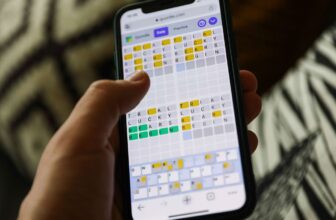It looks like Microsoft is doubling down on including synthetic intelligence options to Windows 11, with the newly launched schedule for Microsoft’s Construct 2024 suggesting that lots of the talks and displays will give attention to AI and the way it can form the way forward for computing.
As Windows Central reports, Construct 2024, which runs from Might 21 to 23, will characteristic a session known as “Designing for a brand new Windows AI feature” which is able to spotlight “brand-new options that permit customers deeper interplay with their digital lives on Home windows by way of advance[d] AI options.”
Some publications, such as Windows Latest, recommend that this new AI characteristic might be the rumored AI Explorer characteristic. The occasion will probably be hosted by Rebecca Del Rio and Adrienne Pauley, each of whom have beforehand labored on AI initiatives at Microsoft.
Microsoft’s Construct occasions are primarily geared toward builders and showcase new options and instruments that can assist them create cutting-edge apps. Nonetheless, very like Apple’s Worldwide Developers Conference (WWDC), Microsoft Construct is usually of curiosity to non-developers as nicely, because it offers us an perception into what the longer term holds for Home windows 11 (or in WWDC’s case, what’s coming to macOS and iOS).
Judging by the launched Construct 2024 schedule, it appears to be like like the way forward for Windows 11 will characteristic AI – a variety of it. Out of 245 periods, 79 have the subject of ‘AI Growth’ or ‘Copilot’ (Microsoft’s AI-powered assistant), and even periods reminiscent of “Introducing the Subsequent Technology of Home windows on Arm” that won’t initially appear to be focussed on AI will doubtless have some references. Arm {hardware}, which is a substitute for AMD and Intel, is getting improved AI help because of NPUs (neural processing items).
The truth that Microsoft is continuous to push AI might not be a shock to many individuals – the previous few months have seen the corporate including all kinds of AI options to varied elements of Home windows 11, and Construct 2024 will probably be a very good likelihood to show that it’s nonetheless dedicated to its AI push. Nonetheless, there are three massive dangers that Microsoft must keep away from if it needs to realize its imaginative and prescient.
The three big risks

1. Failing to show why AI in Windows 11 is worth it
This is perhaps the biggest risk facing Microsoft. While the company has been adding AI to all parts of Windows 11, I actually don’t assume the corporate has proven why I ought to use these new options.
Copilot, Microsoft’s essential AI instrument, is now built-in into Home windows 11, and is undoubtedly very highly effective. Nonetheless, since Microsoft added it to Home windows 11, I’ve used it maybe two instances – as soon as to see the way it labored, and a second time to generate a picture. Since then, I have never used it – and it’s not as a result of I mistrust AI, as I consider it has monumental and thrilling potential.
It’s as a result of Microsoft hasn’t given me a motive to make use of it. I merely have no idea the way it might make my day-to-day life simpler. Common duties I carry out on my PC might be improved with some AI assist, however I can’t see how proper now.
If Microsoft needs to reap the rewards of all of the vitality and energy it’s been placing into AI, it wants to indicate its customers why we must be as excited as it’s about this courageous new world. If it doesn’t, then Copilot, and Home windows 11’s different AI instruments, might quickly be forgotten.
2. Forcing people to use it
Another risk for Microsoft is being too overbearing when it comes to encouraging users to try out the new AI tools. As with my first point, Microsoft must show how AI can improve our lives, not just tell us – and force us to try it out.
Unfortunately, Microsoft has a habit of being rather heavy-handed when it comes to trying to get people to use its software and services. Just look at how it tries to get people to stop downloading the Chrome web browser and use Edge instead, or the increasingly invasive pop-ups in Windows 10 that try to persuade individuals to improve.
Microsoft has already proven a worrying tendency to do the identical with Copilot. Earlier this week we reported on the corporate altering a fundamental touch gesture in Windows 11 to bring up Copilot, and there are quite a few rumors that Microsoft might load Copilot and display it on your desktop when you start Windows 11.
Moderately than getting extra individuals to check out AI instruments, this aggressive conduct might really put extra individuals off.
As a substitute, Microsoft must be assured sufficient in Copilot to permit customers to find it themselves – whereas highlighting its virtues with out interrupting individuals whereas they use Home windows 11. And, if a person decides Copilot isn’t for them, Microsoft wants to simply accept their choice, reasonably than persevering with to nag individuals within the useless hope that they could change their minds.
3. Losing faith too easily
While Microsoft is going all-in on AI at the moment, we’ve been here before, where Microsoft has identified a new flavor of the month, pushed it on its users, and then given up if it’s not an immediate success.
Just look at Cortana – Microsoft’s earlier digital assistant. It got here at a time when its rivals have been seeing a variety of success with voice assistants like Apple Siri, Google Assistant, and Amazon Alexa.
Microsoft’s ardour meant Cortana was quickly tightly built-in into Windows 10 and Home windows 11. It had its personal taskbar icon and would pop up unbidden if you first arrange your new PC. Regardless of Microsoft’s fervor, it by no means satisfied sufficient customers that Cortana might assist enhance their lives, and so it ended up being at greatest an simply forgotten failure, and at worst a ineffective annoyance. Sound acquainted?
Copilot definitely dangers falling into the identical entice – and the issue is that Microsoft has a repute for dropping merchandise that fail to take off. Ask any proprietor of a Microsoft Phone or Zune media participant. Or, simply have a look at what in the end occurred to Cortana: the digital assistant that was as soon as so entwined in Home windows that it will pop up as quickly as you turned in your new gadget was slowly hidden away… till it was lastly axed and changed with Copilot.
To keep away from this, Microsoft must study from the errors it made with Cortana – particularly in the case of convincing its customers that Copilot could make a optimistic impression on their lives. It additionally must have religion that even when Copilot isn’t a right away hit, it ought to proceed to speculate and enhance it, reasonably than killing it off rapidly and transferring on to the subsequent factor.
From what I’ve seen and heard from Microsoft, it appears totally dedicated to AI and Copilot – for now. Nonetheless, if it doesn’t discover a solution to show that AI is the way forward for Home windows, we might even see historical past repeat itself.





